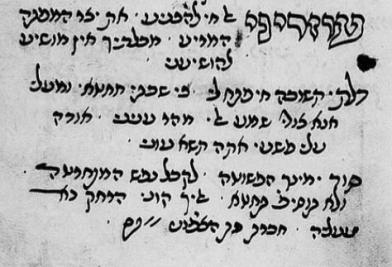This piyyut appears in ancient Haggadot and the author is unknown. It addresses how, throughout history, many enemies have arisen seeking to destroy Israel, but God rescues Israel from their clutches. The piyyut appears in the Haggadah celebrating the rescue of the slaves from Egypt – the central point of the holiday – which is actually the first of many rescues which follow throughout the generations.
The first words in the piyyut relate the promise and certainty that God exists and protects his nation. This promise appears in the Haggadah at the end of the section just before V’hi Sh’amda, with the words “Blessed is the one who keeps his promise with Israel, blessed is he.”
According to the tradition of the Ari, one should raise the wine cup when reciting this piyyut, in order to emphasize the salvation of the Jewish nation from utter destruction. In Ashkenazi communities, V’hi Sh’amda stands out during the Seder because it is sung, and follows after a long section in the Haggadah that is just read aloud.
Music
There are a number of arrangements to this piyyut, including the following, which are three of the most widely known:
Traditional Ashkenazi melody – to listen to a performance by Arieh Greb, click here.
A slow melody attributed to Rabbi Aharon of Karlin, which is also sung by Chabad – to listen to the rendition by the group Renanim, click here.
A medium-tempo version from the Bobov hassidim – to listen to a rendition by Chilik Frank , press here.
New arrangements
In 2009, Yonatan Razel released a new arrangement for the piyut, to listen click here.
In 2011, the Israeli guitarist Eliyahu Meir Dali released a heavy rock instrumental arrangement to the well- known Ashkenazi melody, as part of the “Metal Prayer” project. To listen, click here.
Words of the Piyut
And this is what stood behind our fathers and behind us
There was not only one which stood against us to destroy us
Rather, in every generation they stand against us to destroy us
And the holy blessed one saves us from their hands





